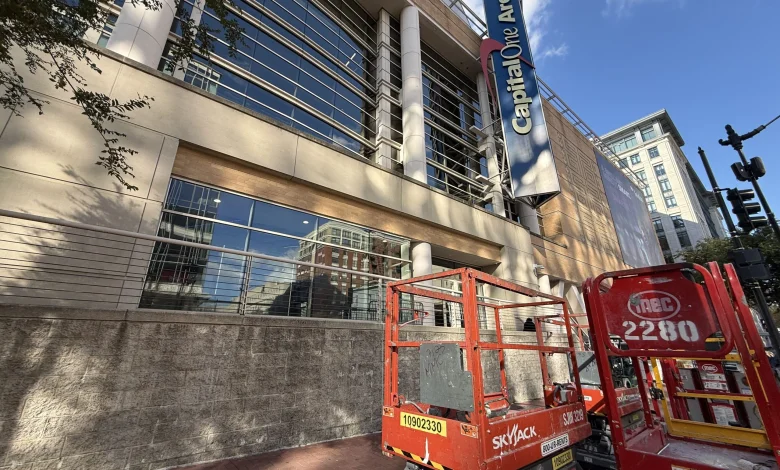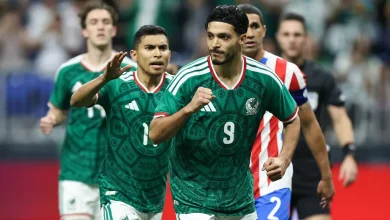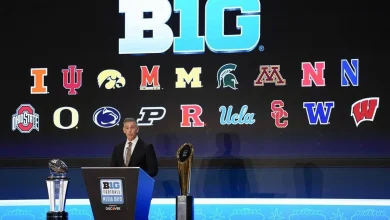Capital One Arena set to wrap up Phase 1 of renovation

Capital One Arena is preparing to wrap up the first phase of its multi-year renovation, setting the stage for a more visible and construction-heavy next phase.
Monumental Sports and Entertainment is winding down the first phase of its $815 million-plus project to modernize Capitol One Arena and announcing updates and new partners tied to the redevelopment.
In October, the company announced a seven-year deal with Vanda Pharmaceuticals Inc., making the pharmaceutical a major sponsor at the arena. Under the agreement, Vanda received naming rights to the arena’s new in-house production facilities, now called Vanda Pharmaceuticals Studios.
In a joint statement with Vanda, MSE CEO Ted Leonsis said the partnership reflects a shared ambition to tell “bigger stories, reach wider audiences and uplift the D.C. community.”
The announcement came as phase one of the Capital One Arena redevelopment is nearing completion and phase two, which focused on locker rooms, lounges and premium fan areas, also is ending.
Vanda is the project’s second founding partner, following a multiyear deal with United Airlines. The United deal includes branding and integration opportunities with the NBA’s Washington Wizards, NHL’s Washington Capitals, WNBA’s Washington Mystics, Capital One Arena and Monumental Sports Network.
MSE is looking to secure as many as 10 founding partners, which would involve team-controlled media, community outreach programs and advertising.
MSE did not respond to requests for comment.
Monumental Sports & Entertainment will add 10 founding partners to the Capital One Arena renovations. (Luisa Clausen)
Community impact minimal so far
Chinatown ANC Commissioner Thomas Lee said phase one brought little disruption to the surrounding Chinatown community.
The initial stage of construction mainly focused on interior upgrades, with minimal work on the building’s exterior. Aside from temporary fencing, a few dumpsters on Sixth Street and the short-term closure of the Metro stop entrances over the summer, Lee said most nearby businesses have been unaffected.
Lee said the next phases will include exterior improvements and expanded work zones and will likely be more visible to the community. However, he said, for now, he sees the light footprint of phase one as a positive sign that the redevelopment has been well-managed.
While the first stage caused little neighborhood disruption, Lee said he hopes the city will use this moment to address lingering issues with the surrounding streetscape and public spaces.
He said his constituents have complained about cracked brick sidewalks, lights not working and overflowing trash bins, adding that those need attention.
As the project develops, the commissioner said he would like for the city to combine the “immense investment” in the arena with improvements to downtown infrastructure and public safety.
“If we were to combine all three, we will then see a huge return to when people were attracted to downtown,” Lee said.
Winston Lord, co-leader of the new phase of Chinatown’s Task Force, said the community has expressed “historical skepticism” about whether the redevelopment and renovations can work. Some of those concerns, Lord said, are related to possible gentrification in the area and wanting to make sure the amount of money invested in the project is proportional to its changes.
However, Lord said MSE has been engaged with the Chinatown community to address concerns and fears about gentrification and loss of local culture.
“It’s still early, but all the key players, as far as I can tell, are all rowing in the same direction, which is hugely optimistic,” Lord said.
Lord, founder of Lord Advisory, a strategic advisory firm in D.C., is one of the co-leaders for the successor to the Gallery-Place Chinatown Task Force, an 18-month task force created by Mayor Muriel Bowser to address the future of Capitol One Arena and its neighboring areas.
The arena development will have six phases and will end in 2027.
(Luisa Clausen)
Lord and Tim Ma, a restaurant owner in D.C., who do not have governmental authority, were asked earlier this year to continue the task force’s work. The D.C. Council approved $250,000 as part of Bowser’s fiscal 2026 growth agenda to implement ideas seeded by the task force.
Lord, the son of a Chinese immigrant and a D.C. native, said Monumental has shown interest in finding ways to be good neighbors to the Chinatown area.
“They are eager and already have shown ways that they want to help celebrate Chinatown,” Lord said. “There’s an interest to keep that culture alive and make it thrive.”
The deputy mayor’s office for planning and economic development and the DowntownBID did not respond to requests for comment.
Several more phases are planned through 2027, with construction eventually shifting toward major exterior upgrades, including a new F Street entrance, upgraded concession areas and a redesigned facade.





